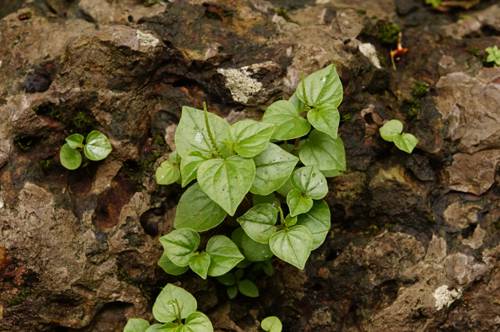
FAQ About Pet-Friendly Indoor Plants

What are some pet-friendly indoor plants?
Many indoor plants are safe for pets, including Spider Plants, Boston Ferns, Areca Palms, Bamboo Palms, and Calatheas. These plants are non-toxic to cats and dogs while being easy to care for indoors.

Why are some plants toxic to pets?
Certain plants contain toxins that can be harmful if ingested by pets. These toxins are natural defenses against herbivores but can cause symptoms ranging from mild irritation to severe illness in pets. Always research a plant's safety before bringing it into a pet-friendly home.

How do I care for a Spider Plant indoors?
Spider Plants are easy to care for, making them ideal indoor plants. They thrive in bright, indirect light but can tolerate lower light conditions. Water them moderately, allowing the soil to dry out between waterings to prevent root rot.

Are succulents safe for pets?
Not all succulents are safe for pets. While some, like Haworthia, are non-toxic, others such as Aloe Vera and Kalanchoe can be harmful. It’s crucial to verify each succulent species for pet safety prior to purchase.

How can I display indoor plants in a pet-friendly way?
To keep plants and pets safe, consider using hanging planters or wall-mounted shelves to display your plants. Additionally, placing plants on high shelves or behind barriers can prevent pets from reaching them while still enjoying greenery in your home.

What symptoms indicate my pet has ingested a toxic plant?
Symptoms of plant poisoning in pets can vary but often include vomiting, diarrhea, drooling, or difficulty breathing. If you suspect your pet has ingested a toxic plant, seek veterinary attention immediately.

Do indoor plants improve air quality?
Yes, indoor plants can improve air quality by filtering out pollutants, increasing humidity, and producing oxygen. Plants like Peace Lilies, Boston Ferns, and Bamboo Palms are known for their air-purifying properties.

Can I have a Peace Lily in a pet-friendly home?
Peace Lilies are not pet-friendly as they contain calcium oxalate crystals, which can cause irritation and potentially severe symptoms if ingested by pets. Consider a safe alternative, like a Bamboo Palm, for similar air-purifying benefits.

What are the benefits of having indoor plants?
Indoor plants offer numerous benefits: they improve air quality, enhance aesthetics, reduce stress, and even boost productivity. Additionally, caring for plants can be a therapeutic and rewarding hobby.

How do I ensure my plants and pets coexist peacefully?
To ensure harmony between your pets and plants, research non-toxic plants, implement safe display methods like hanging baskets or sturdy plant stands, and train your pets to avoid plant areas when possible.

Are ferns safe for cats and dogs?
True ferns, such as Boston Ferns and Maidenhair Ferns, are generally safe for cats and dogs. However, it's important to avoid so-called ferns like Asparagus Fern, which are toxic to pets.

Why should I avoid using certain fertilizers in a pet-friendly home?
Some fertilizers may contain harmful chemicals that, if ingested by pets, can cause adverse reactions or poisoning. Opt for natural or pet-safe fertilizers and keep them safely stored away from curious pets.

Can indoor plants attract pests that harm pets?
Indoor plants can sometimes attract pests like gnats or spiders, but they rarely pose a direct threat to pets. Regular plant care, including proper watering and checking for pests, can help prevent infestations.

How much light do pet-friendly indoor plants need?
The light requirements for pet-friendly indoor plants vary by species. For example, Spider Plants prefer bright, indirect light, while Boston Ferns can thrive in shadier spots. Always check specific care instructions for each plant type.

What are some low-maintenance, pet-safe plants?
Low-maintenance and pet-safe plants include Spider Plants, Bamboo Palms, Cast Iron Plants, and Areca Palms. These plants are resilient and require minimal care, making them ideal for busy or inexperienced plant owners.

How can I train my pet to avoid chewing on plants?
Training pets to avoid chewing plants involves consistent reinforcement. Use commands like "no" and provide chew toys as alternatives. Consider using pet-safe deterrent sprays on plants and rewarding your pet when they ignore the plants.

Are there any aromatic pet-safe indoor plants?
Yes, certain aromatic plants are safe for pets. Herbs such as Rosemary and Basil can be grown indoors and are non-toxic to pets, offering both fragrance and culinary use.

How do I deal with a pet that keeps digging into plant soil?
If your pet digs into plant soil, try covering the soil with decorative stones or using planters with protective barriers. Training your pet to avoid these areas and providing them with appropriate outlets for digging, like a sandbox, can also be effective.

Can any indoor plants help calm pets?
Certain plants like Valerian are believed to have calming effects on pets, but they should be used with caution and under guidance from a vet. More commonly, the presence of houseplants may promote a relaxing environment for both humans and pets.

Why are some plants considered pet-friendly but still cause mild issues?
While many plants are labeled as pet-friendly, ingestion in large amounts can still cause mild digestive upset. It's always best to prevent pets from chewing on any plants when possible, regardless of their toxicity level.
